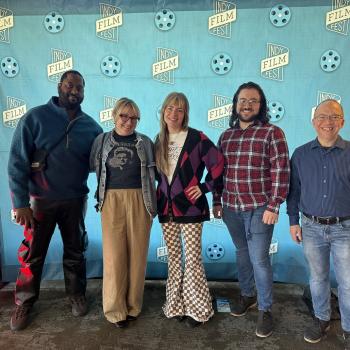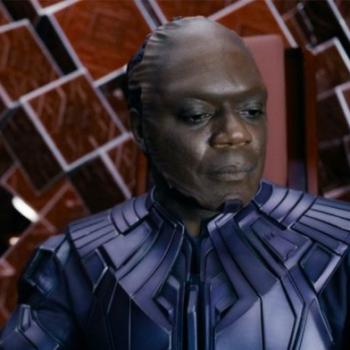I was delighted to get a chance to see the new movie The Banker prior to its release, and was rather dismayed when I thought that such an important movie was likely to be completely overshadowed and therefore missed due to the pandemic. On the other hand, I told myself that people all over the world have been told to stay at home unless absolutely necessary, and so perhaps this movie recommendation will be well timed, given that the movie (as so many, due to cinemas being closed) is available for online streaming. Then I learned more about one of the driving forces behind the film, and wondered if I should blog about it at all. Here are my thoughts on this timely but deservedly controversial film.
While this is a movie based on real events which explores the history of racial discrimination in the United States, it may be important to emphasize that it isn’t just that. Some won’t watch those films, probably because they cut too close to home. Others won’t watch yet another such film because they’ve seen many. But at its heart this is a movie that shines a spotlight not only on racism but also the character of American capitalism. It also frames the story in connection with legislation and the courts by having the story begin and conclude (apart from an epilogue) with a courtroom.
We then flash back to an early but telling moment in the life of the film’s main character, Bernard Garrett, in Wallis, Texas in 1939. He is working as a shoeshine boy, and takes notes on bankers’ conversations. When confronted about this, he says “I just wanna learn how they make money.” We then jump ahead to 1954 and to Los Angeles, where Bernard now lives with his wife. He has gone into real estate, and as he pursues his vision he bumps up against the variety of obstacles one might expect a black man to encounter in this era, even in LA, although the differences between California and Texas will become a focus. Bernard’s determination and ingenuity are regularly on display, and he more than lives up to his wife’s earlier expression of faith in him when she said, “My husband is a genius. You’ll see.”
That aspect of the story has become the focus of significant controversy, as Bernard was married more than once, and yet only his first wife is depicted as though she were the one involved in his later financial successes, which was not the case. Reading about these matters provides a useful basis for reflection on story and history and the relationship between the two.
Since there is so much to feel ambiguous about when it comes to the movie, let me highlight a video about history narrated by my Butler University colleague Dr. Terri Jett about redlining, an important aspect of the history of discrimination and segregation that still impacts neighborhoods and housing today.
Probably the main intersection with religion in the movie is when the new bankers, looking to assist their fellow black victims of discrimination and prejudice, ask black ministers for reliable people to lend to. Even so this doesn’t prevent them falling afoul of authorities, although that is almost entirely due to a man whom they enlisted to be the “white face” of their business, but who is convinced he can be a partner and bank owner and manager like them even though he needs to be taught how to fake the math (as well as being taught how to golf because “you can’t fake golf.”)
If there is a takeaway from the movie, it is that one can individually succeed despite the system and get away with it, at least for a time. It is when you challenge the system itself that things start to get really difficult.
Three years after the court case that begins and ends the film, the Fair Housing Act is passed. But there is a great deal that still needs to be done, even today. Perhaps especially today, when discrimination, bigotry, nationalism, patriarchy, and much else that the movie highlights not only continues to be an issue, but is experiencing an upsurge.













